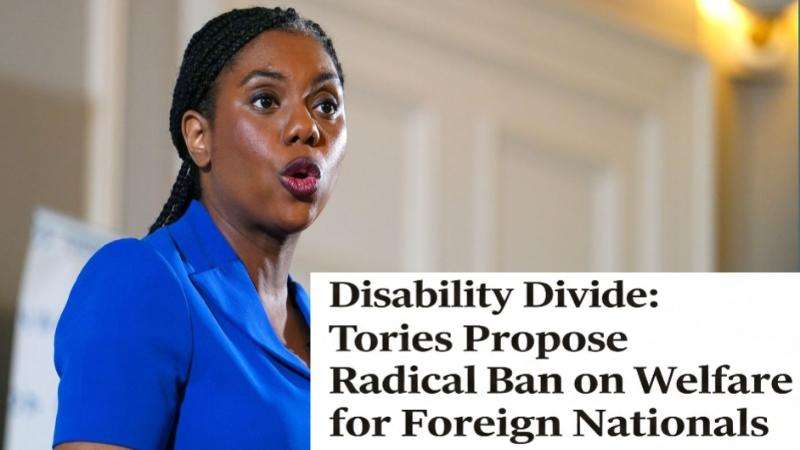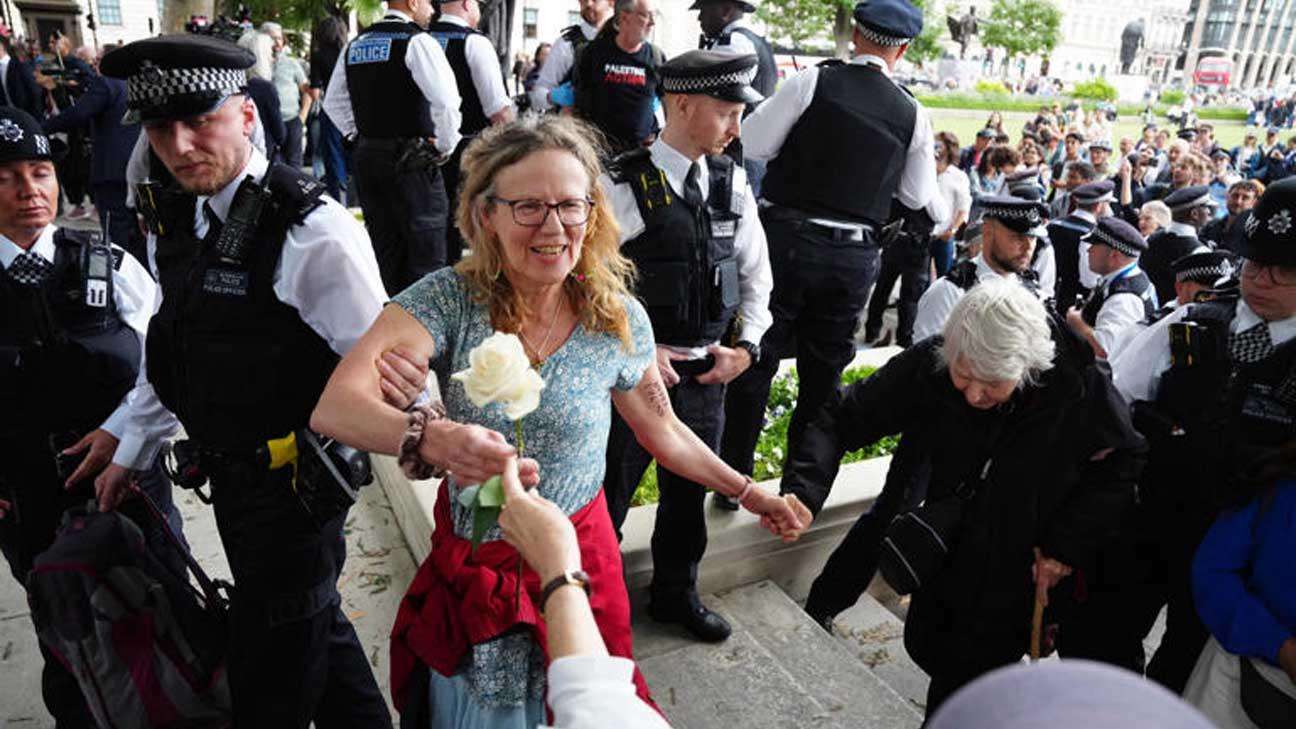More than 28 individuals were arrested on suspicion of terror offences in Parliament Square today, July 5, 2025, just hours after the UK government officially proscribed Palestine Action as a terrorist organization. The sweeping arrests mark a dramatic escalation in the state's response to the direct action group, igniting a fierce debate over civil liberties and the right to protest.
The arrests commenced around 1:30 PM, following a protest that began shortly after 1:10 PM beneath the Mahatma Gandhi statue. Metropolitan Police officers encircled silent demonstrators, many displaying placards stating: "I oppose genocide. I support Palestine Action." Among those detained were an 83-year-old Reverend Sue Parfitt, a priest, a professor, and medics, highlighting the diverse nature of those participating. Footage from the scene showed officers removing individuals, including a woman calmly asserting her support for Palestinian rights and freedom of speech as she was carried to a police van.
The proscription, confirmed by the Home Office after Palestine Action lost a late-night Court of Appeal challenge on Friday, July 4, 2025, now renders membership of or support for the group a criminal offence, punishable by up to 14 years in prison. This new legislation came into force at midnight.
Palestine Action's Stance and Future Avenues
Despite the severe penalties, Palestine Action has signaled its unwavering resolve to continue its activism. An open letter to the press, referenced by protester Latifa Abouchakra, conveyed the group's refusal "to be cowed into silence" and its intention to "do this more and more" in defiance of what it labels an "unjust law."
This suggests the group and its sympathizers may adapt their approach in several ways: they could become more decentralized, with individuals undertaking autonomous actions that are harder to link directly to a formal organization. Legal challenges against the proscription are also likely to continue, potentially extending to international human rights bodies, especially given the arrests of seemingly peaceful individuals. Furthermore, the focus may shift more heavily towards public awareness campaigns and advocacy through existing civil society channels, as overt organizational activities become increasingly risky. Symbolic acts of defiance, such as today's protest, are also expected to persist, with one supporter believing that the number of participants could multiply significantly.
The Immediate Fallout and Political Reactions
The immediate consequence of the ban and subsequent arrests is a deepening chasm between the government and a segment of the public profoundly concerned about civil liberties. Labour MP Clive Lewis sharply criticized the police action, emphasizing the peaceful nature of the protest and the backgrounds of those arrested. "This is not about terrorism. It’s about silencing dissent – and it’s leading us down an ever-darkening path," he stated.
Supporters at the scene echoed these concerns. One anonymous individual spoke of feeling "powerless" and "chilled," attributing the government's decision to "heavy pressure." Latifa Abouchakra, a Palestinian activist and teacher, viewed the proscription as demonstrating the British government's "friendship, alliance with a genocidal state."
The Metropolitan Police confirmed the arrests on X, citing offences under the Terrorism Act 2000 and reaffirming that "Palestine Action is a proscribed group and officers will act where criminal offences are committed." The Home Office, for its part, welcomed the court's decision, prioritizing national security and public safety.
Background to the Proscription
The decision to proscribe Palestine Action followed a series of high-profile incidents, most notably the group's claim of responsibility for £7 million worth of damage to two Voyager aircraft at RAF Brize Norton on June 20, 2025. Home Secretary Yvette Cooper announced the proscription plans on June 23, citing the "disgraceful" vandalism and the group's "long history of unacceptable criminal damage." The ban received overwhelming support in the House of Commons on Wednesday, July 2, 2025 (385 to 26), and was subsequently backed by the House of Lords on Thursday, July 3, 2025. Four individuals have been charged in connection with the Brize Norton incident.
As the legal and social ramifications unfold, the actions of Palestine Action's supporters, the government's continued enforcement, and the ongoing public debate on the boundaries of protest in the UK will remain under intense scrutiny. The arrests serve as a stark illustration of the heightened stakes for those choosing to defy the new ban.




_3.jpg)


.svg)
